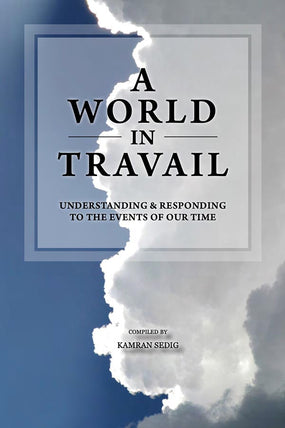Studies in Bahá’í Epistemology
In Modern times and, more specifically, since the appearance in 1781 of Immanuel Kant’s Critique of Pure Reason, epistemological issues acquired a special significance in philosophical studies. With the rise of Biblical criticism, Christian scriptural philosophy had lost its momentum, and nineteenth and twentieth-century thinkers focused on sense perception and reason as the two primary sources of human cognition.
A recently conceived and developed religious movement, the Bahá’í faith reintroduces the scriptural mode of thinking into philosophical inquiries. Its scriptural texts are well preserved and authenticated. Many of the writings by the founding figures of the faith explicitly address critical philosophical problems. They also employ the Aristotelian technical vocabulary with occasional addition of neo-Platonic terms.
In the West, epistemological studies from a Bahá’í perspective started in 1978 with the publication of Jack McLean’s essay “The Knowledge of God: An Essay on Bahá’í Epistemology.” Since then, Bahá’í thinkers have addressed different...Show More
In Modern times and, more specifically, since the appearance in 1781 of Immanuel Kant’s Critique of Pure Reason, epistemological issues acquired a special significance in philosophical studies. With the rise of Biblical criticism, Christian scriptural philosophy had lost its momentum, and nineteenth and twentieth-century thinkers focused on sense perception and reason as the two primary sources of human cognition.
A recently conceived and developed religious movement, the Bahá’í faith reintroduces the scriptural mode of thinking into philosophical inquiries. Its scriptural texts are well preserved and authenticated. Many of the writings by the founding figures of the faith explicitly address critical philosophical problems. They also employ the Aristotelian technical vocabulary with occasional addition of neo-Platonic terms.
In the West, epistemological studies from a Bahá’í perspective started in 1978 with the publication of Jack McLean’s essay “The Knowledge of God: An Essay on Bahá’í Epistemology.” Since then, Bahá’í thinkers have addressed different aspects of epistemological research. They discussed the independent search for truth, the standards of knowledge, the problems of certainty and relativity, infallibility, and interpretation, as well as mystical experience. All those topics are explored in-depth in corresponding chapters of the book.
-
Contributors:
Mikhail Sergeev (Editor) |
Peter Terry (Author) |
Mikhail Sergeev (Author) - Format: Softcover book | 370 pages
- Dimensions: 133 x 203 x 19 mm | 386 g
- Publisher: M-Graphics Publishing, 2021
- Note: © M-Graphics Publishing, printed with permission
- ISBN: 9781950319626
- SKU: SERGE_EPIST@p
-
Contributors:
Mikhail Sergeev (Editor) |
Peter Terry (Author) |
Mikhail Sergeev (Author) - Format: Softcover book | 370 pages
- Dimensions: 133 x 203 x 19 mm | 386 g
- Publisher: M-Graphics Publishing, 2021
- Note: © M-Graphics Publishing, printed with permission
- ISBN: 9781950319626
- SKU: SERGE_EPIST@p
-
Email Author
An email will be sent on your behalf to the author. Engagement in further correspondence is up to the author.






















































